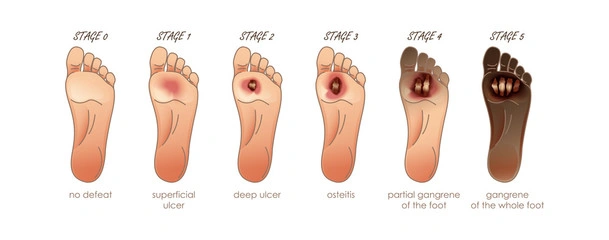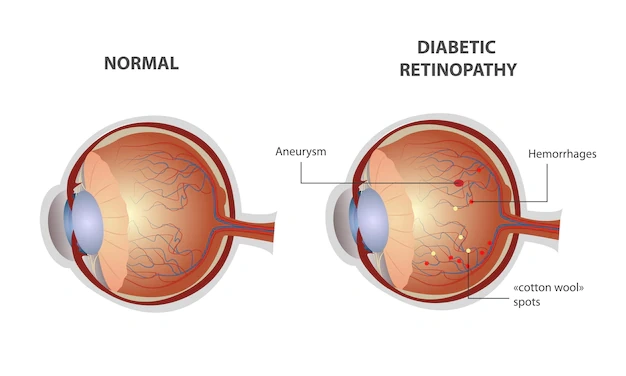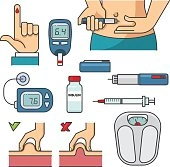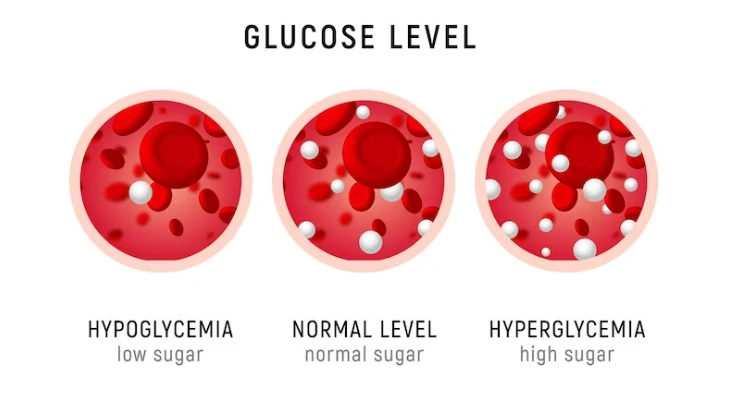How to get Better Diabetes Control and what to ask your doctor Conversation with Dr A G Unnikrishnan
04-10-24
How to get Better Diabetes Control & what to ask your doctor
Conversation with Dr A G Unnikrishnan,
Dr. A G Unnikrishnan, a leading Endocrinologist and CEO at Chellaram Hospital and Diabetes Care Pune, in a conversation with Healthy Wrinkles, explains What to Ask Your Doctor for Better Diabetes Control. Today, we're going to delve into an essential aspect of diabetes care – how to consult a diabetes doctor. While we typically visit a doctor when we're feeling unwell, this conversation will focus on navigating diabetes care. Managing a chronic condition like diabetes involves some key considerations. So, let's break down our discussion into three stages; before entering the doctor's chamber, during the consultation, and after leaving the doctor's chamber. These are simple yet vital steps that can make a significant difference in your diabetes management. Watch our YouTube playlist on diabetes to know more.
1. Researching Your Doctor: Finding the Right Fit
When you're living with a chronic condition like diabetes, it's crucial to choose a doctor who specializes in the field. You might come across famous doctors on the internet, but popularity doesn't always guarantee the best care. To begin your search, read patient reviews and testimonials. Conduct an online search for potential doctors, but don't solely rely on this. Ideally, seek recommendations from people you trust who have visited a doctor for diabetes and found them compassionate, caring, and approachable. These personal insights can be invaluable. Healthy Wrinkles has a curated list of healthcare professionals for seniors. This includes list of senior care experts like Geriatricians.
2. The Consultation: Maximizing Your Time with the Doctor
Once you've selected a doctor, it's time to prepare for your consultation. Understanding the basics of your condition is essential. For diabetes, grasp the "why" behind its treatment. Diabetes is all about managing elevated blood glucose levels. We treat diabetes because unmanaged diabetes can harm five crucial areas the eyes, kidneys, feet, heart, and overall immunity, making you more susceptible to infections like COVID-19 and tuberculosis. Your doctor should explain why treating diabetes is vital. Managing diabetes typically involves diet, physical activity, medications, and regular monitoring. Read diet plan for diabetic seniors.
As you enter your doctor's chamber, ensure you bring all the necessary documents. This includes your recent medical reports, prescriptions, and any relevant medical bills. It's incredibly helpful to have your previous medical notes on hand. Your doctor functions as a detective in your healthcare journey. Previous notes, reports, images, or X-rays can provide valuable information that guides your treatment. For instance, knowing whether you've had a comprehensive eye checkup is essential for diabetes management. A regular eye checkup is not just about getting a new pair of glasses; it's about assessing the health of your retinas, which can be affected by diabetes.
3. Open Communication: Sharing Your Experience
Don't hesitate to communicate openly with your doctor. Your doctor's understanding depends on what you share. Diabetes management often involves personalized choices like specific diets, exercise regimens, or even insulin therapy. Some patients may opt for dietary approaches such as intermittent fasting, and it's crucial to inform your doctor about these preferences. Certain diabetes medications can cause low blood sugar, so your doctor needs this information to prescribe the most suitable treatment. When ordering diagnostic tests, focus on the ones your doctor recommends. Testing for vitamin deficiencies, heavy metals, or other irrelevant markers can lead to unnecessary prescriptions and confusion. Diabetes management necessitates an HbA1c test, a powerful tool that provides a three-month average of your blood glucose levels. Unlike fasting blood tests or instant glucose readings, HbA1c offers a comprehensive view of your diabetes control and its potential complications.
4. Evaluating Your Doctor What to Look For
As you interact with your doctor, consider several key factors that can help you evaluate your experience
Communication Has your doctor ensured that you fully understand your condition and treatment plan? Do they encourage you to ask questions and participate in your care?
Clarity Does your doctor use plain language without jargon, making it easier for you to grasp the medical information?
Patient-Centric Approach Is your doctor willing to consider your preferences and choices while aligning them with scientific evidence and clinical experience?
Information Sharing Does your doctor provide comprehensive explanations for prescribed medications, including potential side effects? For more information around commonly prescribed drugs for the management of chronic disorders like diabetes, refer to video series Know Your Medicines. Open discussions about treatment plans can help you make informed decisions. Learn more about diabetes in seniors from our experts.
Education Has your doctor explained your condition well? In diabetes management, it's essential to have a clear understanding of what's happening in your body and how treatments work.
Holistic Health Your doctor should emphasize the importance of controlling not only blood sugar but also factors like weight, blood pressure, and cholesterol. A well-rounded approach minimizes the risk of diabetes-related complications. Remember that while a visit to the doctor may last just a few minutes, the quality of those minutes can make a significant impact on your diabetes management journey. Your doctor should aim to make you feel comfortable and confident about your treatment plan, ensuring you leave the consultation room with a clear understanding of your diabetes and a sense of empowerment to manage it effectively. Read more about the role of geriatrician in managing chronic health conditions.
Summary
Selecting the right diabetes doctor, being well-prepared for your consultation, and maintaining open communication with your healthcare provider are all essential steps in achieving better diabetes control. By following these guidelines, you can take charge of your health and work collaboratively with your doctor to navigate the complex landscape of diabetes management.
Whether you are searching for informative articles, or looking for healthcare providers, Healthy Wrinkles is an excellent resource for all your senior care needs. We also have a great compilation of all the medical expert talks for healthy aging on Healthy Wrinkle YouTube channel.
"Join the cause and make a difference in a senior's life - share your knowledge about local senior care resources today!"
Disclaimer: Healthy Wrinkles does not recommend or offer any medical diagnosis, treatment, or advice. The information provided here is only for the awareness of disease or ailment among individuals, caregivers, and the public. The advice of doctors, licensed professionals, or therapists who are knowledgeable about your particular situation should always be sought before using the information provided here. It should also not be used in the event of a medical emergency or for the diagnosis or treatment of any medical condition. If you want urgent assistance, contact a qualified medical professional. Additionally, the information represents the author's views and not those of Healthy Wrinkles.
#diabetes #prevention #diabeticcare #diabeticseniors #healthyaging #healthywrinkles #diabetescontrol #diabetesmanagement #madhumeha















